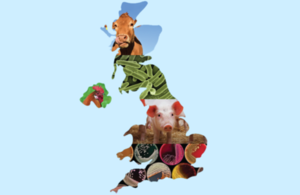On her first day at the UN General Assembly in New York the Prime Minister Theresa May, will join Prime Minister Justin Trudeau of Canada, President Nana Akufo-Addo of Ghana and President Paul Kagame of Rwanda to convene investors, businesses and young African business leaders. The leaders of Kenya, Sierra Leone and Benin are also expected to attend.
Philanthropist Bill Gates, who shares the PM’s vision for investing in Africa’s youth, is also expected to speak at the event.
The PM will challenge attendees to invest in Africa to create more of the jobs that transform lives as well as economies, lift people out of poverty and enable countries to move to a future beyond aid.
The joint event is the next step in the bold new approach set out on the PM’s visit to Africa last month where she announced a new UK partnership with Africa, centred on investment for job creation and inclusive growth.
Africa needs 18 million new jobs each year between now and 2035 just to keep pace with population growth and the PM will set out how this creates not just a challenge but an opportunity for states and investors. In 2018, five of the world’s fastest-growing economies are African. By 2050, a quarter of the world’s population and a quarter of the world’s consumers will live there.
As the PM said in Cape Town last month, as the leader of a trading nation whose success depends on global markets, she wants to see strong African economies that British companies can do business with in a free and fair fashion.
Whether through creating new customers for British exporters or opportunities for British investors, an integrated global economy means healthy African economies are good news for British people as well as African people.
To that end, last month in Cape Town the PM announced an additional £4 billion programme of UK investment in African economies to pave the way for at least another £4 billion of private sector financing. This included, for the first time, an ambition from the UK government’s Development Finance Institution, CDC, to invest £3.5 billion in African nations over the next four years. The Prime Minister’s call for fresh investment builds towards the UK-Africa investment summit to take place in London in 2019.
The PM will highlight the UK’s role in working with the World Bank Group’s International Finance Corporation to enable them to double investment in Sub-Saharan Africa to $10-12 billion a year by 2030, creating new jobs and helping Africa’s private sector to thrive. She will also welcome a new Sustainable Development Capital Initiative launched by the City of London in response to UK leadership, encouraging greater private sector investment in developing economies. It will bring specialists together to maximise the City’s contribution to achieving the Sustainable Development Goals.
Prime Minister Theresa May said:
Last month, I made my first official visit to Africa – meeting leaders, entrepreneurs and young people who are building an exciting future for their countries and their continent.
I saw a continent full of potential. One with a young population that is eager to embrace the opportunities of the 21st century – and ready to play its part in tackling the challenges we all face.
That is why high quality investment and job creation forms the centrepiece of the UK’s new partnership with Africa.
International Development Secretary Penny Mordaunt said:
The City of London has the global expertise to build sustainable relationships with our African partners that will see British businesses investing and trading with some of the fastest growing economies in the world. This is a win for Africa, as it will secure the investment the continent needs for a prosperous future and a win for the UK, seeing British expertise influencing the global economy.
This is about securing the global partnerships that will unlock the crucial private sector backing needed to realise the potential of African economies and create quality jobs.
City of London Corporation Policy Chairman Catherine McGuinness said:
The UK is the world’s second largest investor and donor, and a major trading partner with Africa. It makes a vital contribution to economic development in the world’s poorest countries and we are proud to take a leading role on the international stage.
Thanks to the pioneering efforts of government and industry, London, and indeed the UK as a whole, is a respected world leader in sustainable finance.
It’s only natural therefore that we use this experience to leverage our position as a leading international financial centre to help mobilise the investment and innovation required to achieve the UN Sustainable Development Goals.
I am confident this initiative will provide the leadership, partnership and expert knowledge needed to accelerate the SDGs and realise the trillion-dollar opportunities they present.
Bill Gates, Co-chair of the Bill & Melinda Gates Foundation said:
Africa’s growing youth population presents a huge opportunity, but we can only realise that if African governments, supported by partners like the UK, invest sufficiently in health and education for all, so those young people can reach their potential.
